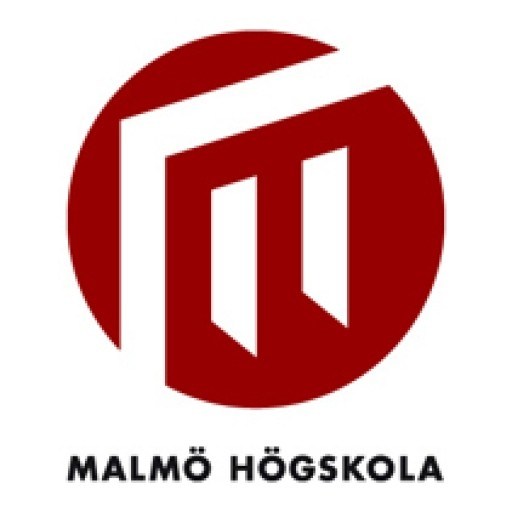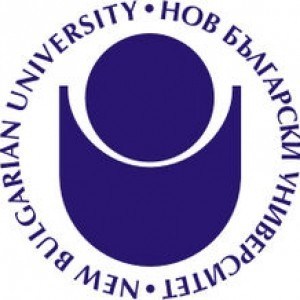Photos of university / #malmostudent
The Master's Program in International Migration and Ethnic Relations at Malmö University offers students an in-depth understanding of the complexities surrounding migration processes and ethnic relations in a globalized world. This interdisciplinary program integrates perspectives from sociology, political science, anthropology, and human geography to explore the causes and consequences of migration, integration, exclusion, and ethnicity. Throughout the studies, students will examine case studies from various regions and periods, gaining insight into policy-making, social dynamics, identity formation, and intercultural dialogue. The program emphasizes critical analysis of societal challenges related to migration, including issues of racism, discrimination, asylum policies, and multicultural coexistence. Students will develop skills in research, policy analysis, and practical interventions, preparing them for careers in public administration, NGOs, research institutions, and international organizations. The curriculum includes coursework, seminars, and a thesis project, fostering both theoretical understanding and applied competencies. Malmö University's vibrant and diverse environment provides an ideal setting for engaging with contemporary migration debates and developing nuanced perspectives. Graduates of this program are equipped to contribute meaningfully to the development of inclusive policies and practices that promote social cohesion and human rights. With a focus on current global migration trends and ethnic relations, the program aims to prepare students for active participation in shaping a more equitable and understanding society.
Detailed Course Facts
Application deadline 15th January Tuition fee- Free
- EUR 9800 Year (Non-EEA)
Tuition fees:
for non-EU students only First installment: 77000 SEK
Full tuition Fee: 231000 SEK
Duration full-time 36 months Languages Take an IELTS test
- English
Course Content
Term 1
contains an introductory course in IMER (International Migration and Ethnic Relations I), with modules focusing on two main themes within the field: international migration and ethnic relations.
Term 2
contains one course aimed at strengthening the students written English proficiency, followed by a course aimed at giving a basis for the students conscious and reflected choice of research design and research methods in the field of IMER.
Term 3
consists of two courses aimed at a deeper understanding of the role of international and internal migration in the construction of contemporary societies and how societies address the outcome of such movements, specifically the issues of ethnic diversity and integration: IMER II: The Challenges of Ethnic Diversity and IMER II: Europe and International Migration.
Terms 4
consists of the course Refugees and Asylum Law followed by the course Project Management: Plan, Execute and Evaluate.
Term 5
consist of elective courses, giving the students a chance to develop their interests and knowledge within fields relevant for future work or studies. The studies during term 5 may include field studies, internships or international exchange studies.
Term 6
consists of the courses IMER III: Research Theory and Methodology and IMER III: Project Work.
Courses
For programme with start Autumn 2015:
Autumn 2015
International Migration and Ethnic Relations I, 1-30 credits (IM104L) compulsory Main field: International Migration and Ethnic Relations
Spring 2016
Basic Research Methods, 15 credits (IM140L) compulsory
Writing in the Social Sciences and Humanities, 15 credits (EN211L) compulsory
Autumn 2016
IMER II: The Challenges of Ethnic Diversity, 15 credits (IM237L) compulsory Main field: International Migration and Ethnic Relations
IMER II: Europe and International Migration, 15 credits (IM258L) compulsory Main field: International Migration and Ethnic Relations
Spring 2017
Refugees and Asylum Law, 15 credits (IM142L) compulsory
Project Management: Plan, Execute and Evaluate, 15 credits (IM143L) compulsory
Spring 2018
IMER III: Research Methodology, 15 credits (IM240L) compulsory Main field: International Migration and Ethnic Relations
Learning outcomes
Knowledge and understanding
A graduate of the Bachelors Programme in International Migration and Ethnic Relations (IMER) can:
show a basic knowledge pertaining to the IMER field of study, as well as knowledge and understanding of the scientific basis of this field;
show knowledge and understanding of the causes and effects of international migration and an understanding of diverse forms of group identification and group processes, and their significance to inclusion and exclusion mechanisms in society;
show a fundamental understanding of the ethnic and social identity processes which occur at societal and micro levels; and
show an in-depth knowledge of one particular area within the IMER field of study and of information concerning current research issues within this field.
Competence and skills
A graduate of the Bachelors Programme in International Migration and Ethnic Relations can:
show the competency to engage with diverse scientific perspectives,identify the complexities of issues and construct an argument using theories, methods and research results;
proficiently formulate problems, and analyse and evaluate information based on scholarly foundations;
can demonstrate an ability to communicate and discuss information, problems and solutions with different groups in society, both orally and in writing; and
show the competency needed to work independently within the IMER field of study.
Judgment and approach
A graduate of the Bachelors Programme in International Migration and Ethnic Relations can:
identify and critically approach questions and problems connected to ethnicity and migration related phenomena in society, and relations between majority and minority communities or between diverse groups amongst minorities;
show the ability to study IMER related issues in a broader social scientific context and make judgments taking into consideration relevant scientific, societal and ethical aspects;
show the ability to be critically engaged, understand the role of knowledge in society, and understand the responsibilities behind its use; and
show the ability to identify their need for further knowledge and competency
English Language Requirements
IELTS band : 6.5 TOEFL paper-based test score : 575 TOEFL iBT® test : 90
To study at this university, you have to speak English. We advice you to
take an IELTS test. More About IELTSRequirements
The special prerequisite for this programme focus, besides basic eligibility for university studies, is fieldeligibility 6: English B.
Work Experience
No work experience is required.
Related Scholarships*
- Academic Excellence Scholarship
"The Academic Excellence Scholarship can provide up to a 50 % reduction in tuition per semester. These scholarships will be renewed if the student maintains superior academic performance during each semester of their 3-year Bachelor programme. The scholarship will be directly applied to the student’s tuition fees."
- Alumni Study Travel Fund
Scholarships for students who are already attending the University of Reading.
- Amsterdam Merit Scholarships
The University of Amsterdam aims to attract the world’s brightest students to its international classrooms. Outstanding students from outside the European Economic Area can apply for an Amsterdam Merit Scholarship.
* The scholarships shown on this page are suggestions first and foremost. They could be offered by other organisations than Malmö University.
International Migration and Ethnic Relations at Malmö University offers an in-depth exploration of the complex phenomena surrounding migration, ethnic diversity, integration, and multiculturalism. This program is designed to equip students with theoretical knowledge and practical skills necessary to analyze migration patterns, policy frameworks, and social dynamics related to ethnic relations in both European and global contexts. The curriculum covers various disciplines such as sociology, political science, human rights, and anthropology, providing a multidisciplinary perspective on migration issues. Students examine topics including refugee movements, integration policies, discrimination, identity formation, and transnationalism, preparing them for careers in public sector agencies, NGOs, research institutions, or international organizations. The program emphasizes critical thinking, research methods, and policy analysis, encouraging students to engage with contemporary debates and challenges in migration and ethnic diversity. Courses often include case studies, comparative analyses, and practical assignments to foster understanding of real-world issues. The program is suitable for those interested in social justice, human rights, public policy, or international development, offering both theoretical frameworks and practical tools to influence positive change. Graduates will be well-prepared to undertake research, policy development, and advocacy work in multicultural and multicultural settings. The program promotes an inclusive and dynamic learning environment, with opportunities to participate in seminars, workshops, and collaborations with external organizations. It also offers fieldwork opportunities to gain firsthand experience of migration processes and intercultural relations. Overall, the program aims to develop culturally competent professionals capable of addressing pressing global challenges related to migration and ethnic diversity with informed and innovative solutions.








